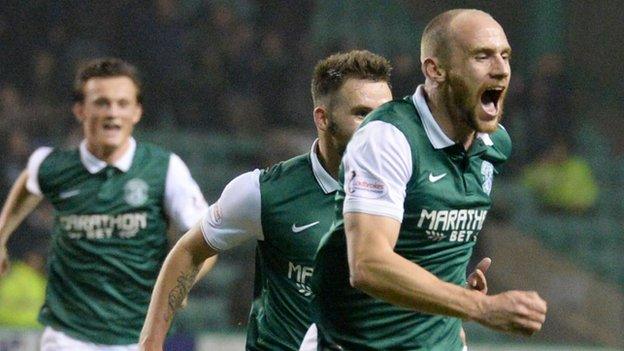Michael O'Neill: Managing success from Brechin to Euro 2016
- Published
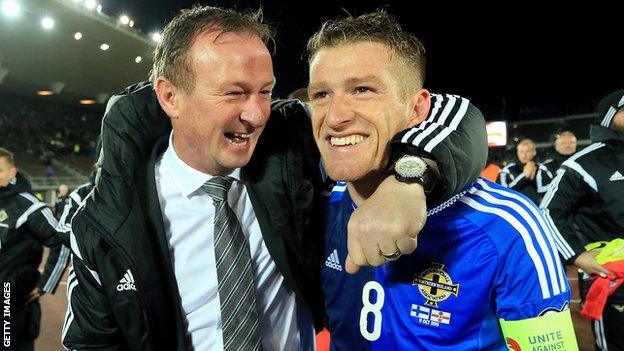
O'Neill (left) has taken his side to the Euro 2016 finals
Michael O'Neill has already been to France to look at potential bases for Northern Ireland in the European Championships next summer., external
At 46, he has led his country out of the international wilderness and he is enjoying a spell of satisfaction ahead of the finals.
O'Neill is, now, at the height of his managerial achievements so far.
He would be in a different place, though, if it had not been for events outwith his control.
Four weeks before O'Neill was interviewed for the Northern Ireland job, he spent five hours in a meeting with two Hibernian directors.
"[Geoff Brown] said to me, 'there are people saying things about you'."
There was a managerial vacancy at Easter Road following Colin Calderwood's departure and, as a former Hibs player who had restored Shamrock Rovers to domestic glory and led them to the Europa League group stage, O'Neill felt sure he would be offered the job.
Instead, he never heard from Hibs again. The outcome rankled, not least because he felt he might also have been in the frame at Dundee United when Peter Houston suffered a moment of doubt and declared that he did not want to be the manager at Tannadice before changing his mind.
The combination of a word of warning from Geoff Brown, the St Johnstone chairman, and phone calls from members of the media, alerted O'Neill to the fact that individuals were spreading rumours that he had a drink problem, which he did not.
"I was appalled to hear that," he says. "Yes, I'll go to the pub and have a beer, of course, and I always enjoyed as a player being around my team-mates, but I don't think anyone would ever say that I was a poor professional as a player.
"The other thing about it was that I was commuting from Belfast to Dublin. It was virtually impossible for me to have a drink problem, I spent most of my time in the car.
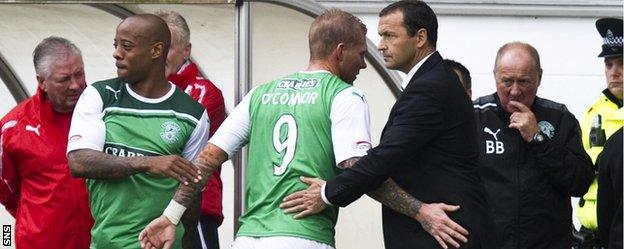
O'Neill thought he was going to succeed Colin Calderwood (right) as Hibs manager
"Geoff Brown had phoned me up - the St Johnstone job was available - and he said, 'would you not apply for it' and, if I'm honest, I thought the Hibs job was going to come up, so I said, 'no, I need to see the Europa League through'.
"But he said to me, 'look, there are people saying things about you that I don't believe are true and it's only fair you know'.
"If it was something of that nature that stopped me getting a job then it's poor because, if chairmen had dug properly, they'd have found quite clearly that it wasn't true.
"I have a fair idea where that came from - you find things out. It came initially out of Ireland from someone who was trying to help someone else get a job.
"At the time, I had a Dublin-based agent, Fintan Drury, who was quite a powerful man in Irish sport and he tackled it with the people in question.
"Had a job in Scotland been offered to me prior to the international job, I would have taken [it], but it wasn't offered to me. Personally, I didn't think I was ready at 41 years of age to be an international manager."
"It was a record fee they paid for me and it was almost as if Jim McLean held that against me."
O'Neill believes that he knows who the individuals in Ireland and Scotland are, but he has moved on from that time.
Having led Northern Ireland to the finals of a major international tournament for the first time in 29 years, he is being lauded.
He is also a strong-willed character. There was a time, at the outset of his career, when he was considered the next Northern Irish prodigy.
In a matter of months, O'Neill went from studying for his A-levels and playing for Coleraine to lining up alongside Paul Gascoigne for Newcastle United and establishing himself as an international.
Relegation and a change of manager led to O'Neill moving to Dundee United when he was 20.
He felt that his development would be better served at a club that had reached the Uefa Cup final two years before, but O'Neill's relationship with Jim McLean was always fraught.
"My dad had to phone him up and tell him I was going to Newcastle and he ate the head off my dad down the phone. I should have reflected on that before I took the plunge," he says, laughing.
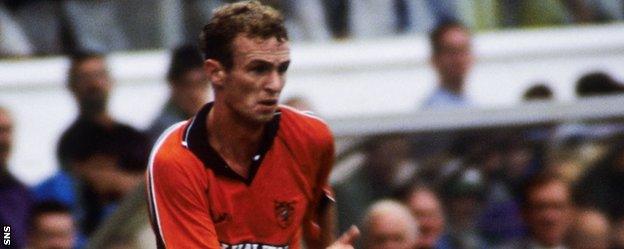
O'Neill joined Dundee United from Newcastle United for a club record fee of £350,000
"It was so much more professional than Newcastle. We had an athletics coach, a strength and conditioning coach, we had a psychologist.
"Jim McLean was always ahead of the game in relation to things like that, but you had to withstand the abuse at times.
"I was different from a lot of the young lads at United, because I'd been signed, at the time it was a record fee they paid for me, and it was almost as if Jim McLean held that against me.
"When I played, there were some really good times, but there were times when you were very harshly treated, particularly in the last year of my contract.
"I'd made it clear that I was looking south again and Jim McLean just refused to play me. There were numerous discussions of a very heated nature.
"I probably benefited from Jim McLean stepping away from the managers' role and Ivan Golac taking it.
"I was the first decision that Ivan got to make and he opted to sell me, which was against McLean's will. I think that was the only decision he got to make."
"He said they wanted to give me the [manager's] job. I said, 'oh no'."
O'Neill believes that he then played some of the best football of his career during three years with Hibernian before embarking on a tour of clubs and countries.
During his spell of banishment at Tannadice and then again at Coventry City, he continued his education and, after retirement in 2004, embarked on a career in financial services.
Yet the game never relinquished its hold and he returned to it the following year in a part-time role assisting Mixu Paatelainen at Cowdenbeath.
A former team-mate, Grant Johnson, then paved the way for a move into management with Brechin City.
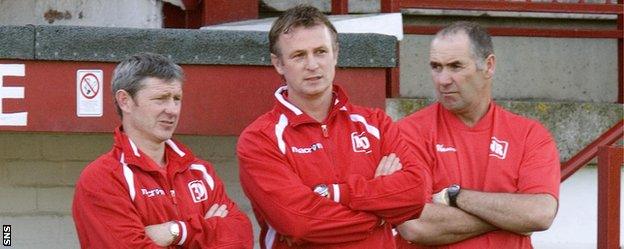
O'Neill (centre) began his management career with Brechin City in Scotland's Second Division
"I spoke to them and Grant phoned me that night. He was quite excited and said they wanted to give me the job. I went, 'oh no'," O'Neill says.
"I'd done my coaching badges, so this was a chance to see if I was any good at it or not. It's a tough challenge I took on, to be fair."
O'Neill admits that much of his work in management has been based on the structures McLean established at Tannadice, particularly the use of bonus money to motivate players.
He revived Shamrock Rovers, leading them to their first title in 16 years in his second season in charge, then another title and qualifying for the Europa League group stages.
The success generated resentment from opponents, but O'Neill also encountered additional abuse.
"You were from the north and at times what people would shout at me during games wasn't particularly pleasant," he says.
"I'm not here to say Mass."
Jim Magilton and Iain Dowie were considered the front runners for the Northern Ireland job in December 2011, but O'Neill was appointed on the basis of an impressive interview.
Religion was never an issue for him during his playing career, with O'Neill one of many Northern Ireland players from a Catholic background.
He rejects the notion that it might have played a part in his appointment, with Northern Ireland having seen a number of players from a nationalist background persuaded to switch allegiance to the Republic of Ireland.
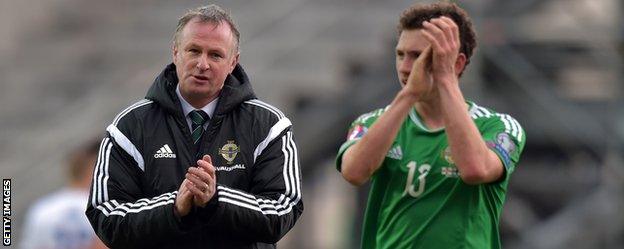
O'Neill (left) has had to battle against losing players to the Republic of Ireland
"There was media speculation that was one of the reasons I was appointed. I remember being asked, 'do you think you've got the job because you're Catholic', and I said, 'I'm not here to say Mass, I'm here to pick a team'," O'Neill says.
He feels it is "grossly unfair" that youngsters are persuaded to make a binding decision at an early stage of their careers, but it is an issue he cannot control.
Others might emerge, too, since his contract runs only until the end of the European Championships.
He describes club management as "very appealing" but also that he would be happy to continue in international management.
"At one point," he says, "I definitely want to work in Scotland."
- Published3 November 2015
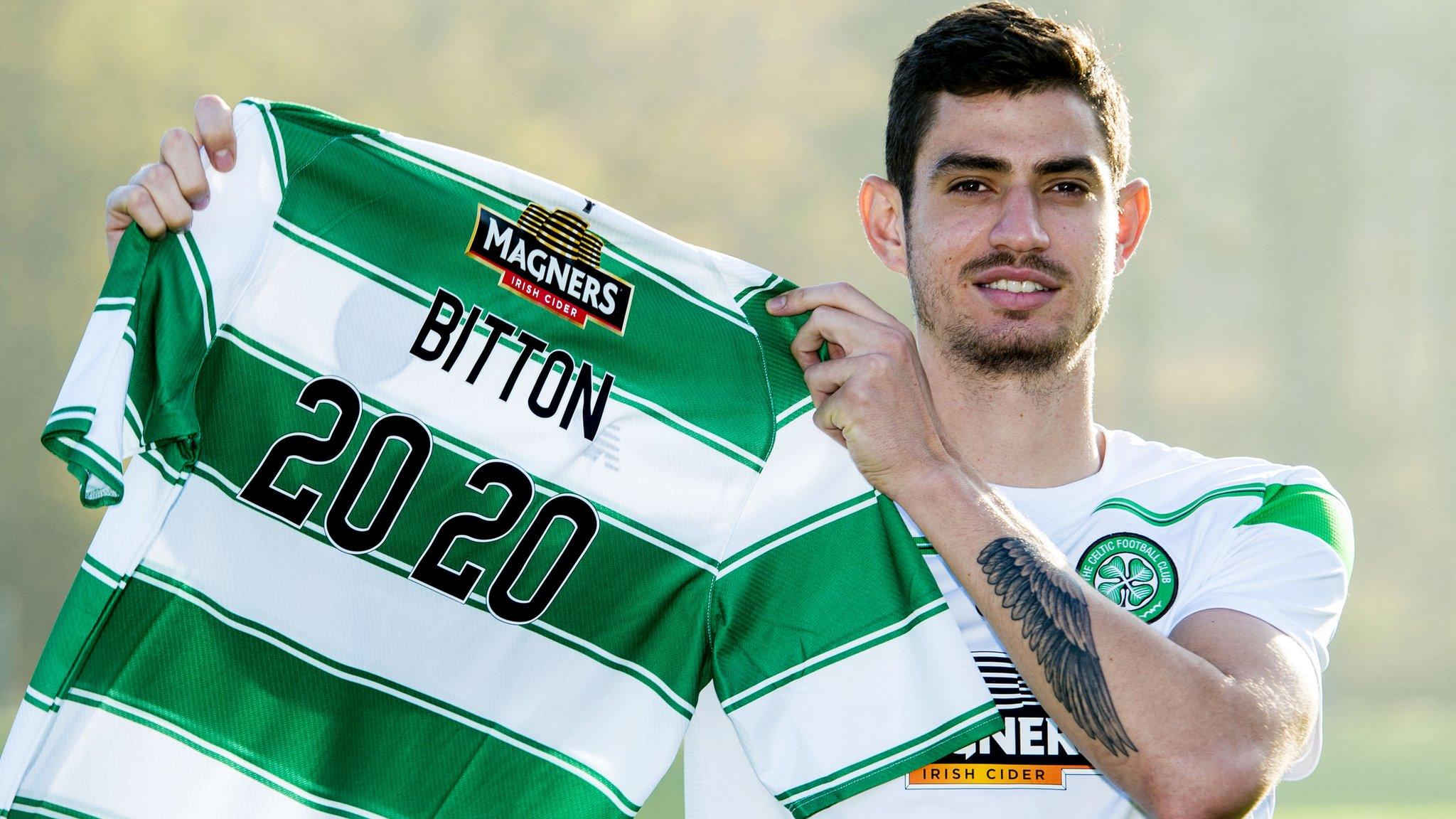
- Published3 November 2015
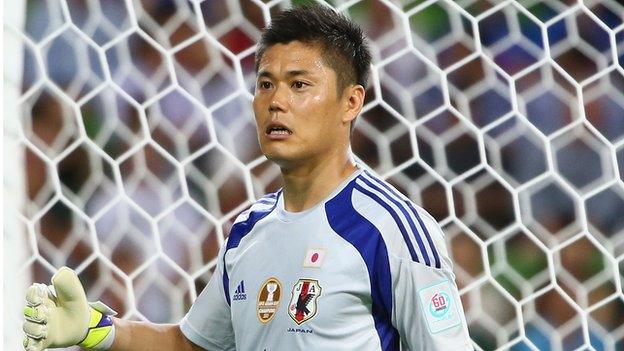
- Published4 November 2015
